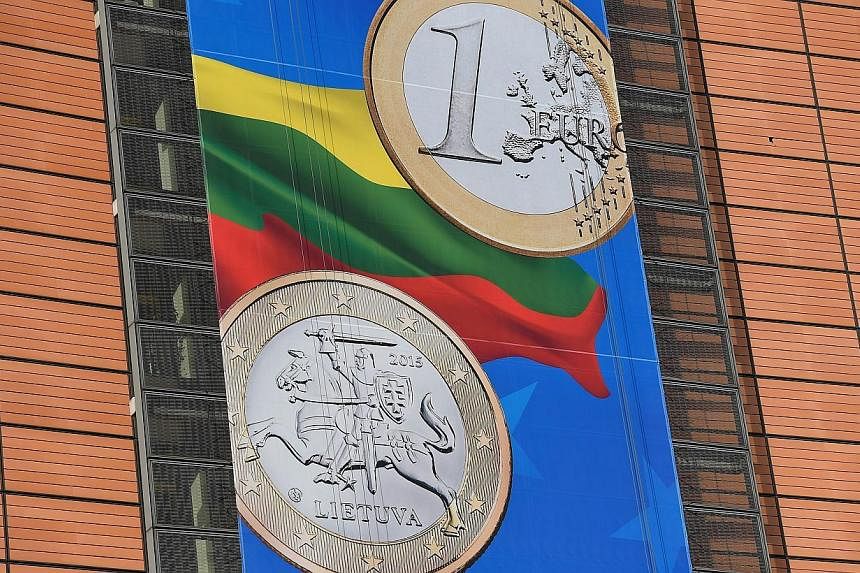SYDNEY - The euro wallowed near a nine-year trough early on Tuesday, keeping up a wobbly start to 2015 as the prospect of more policy easing from the European Central Bank grew ever stronger.
The common currency last traded at US$1.1934 after dipping into the US$1.1860 area on Monday, reaching depths not seen since early 2006. The sell-off extended the currency's eye-watering 12 per cent slide in 2014, its worst performance in nine years.
Adding pressure on the ECB to do more, German inflation slowed to its lowest in over five years in December. The data came just days after ECB President Mario Draghi said the risks were growing that inflation would stay too low for too long.
Constant chatter of a Greek exit from the euro zone further sapped confidence in the currency.
"I believe EUR-USD will continue to fall this month as the market moves to near 100 per cent certainty of ECB QE on Jan 22," analysts at CitiFX wrote in a note to clients, attributing those comments to the bank's head New York spot trader.
These factors, combined with persistent weakness in oil prices, spooked investors on Monday, sending Wall Street to its biggest one-day fall in about three months.
In the currency market, the flight to safety drove investors into the arms of the yen. As a result, the US dollar dipped below 120.00 yen from Monday's high of 120.68, moving further away from a seven-year peak of 121.86 set last month.
A sharp fall in US Treasury yields also undermined the dollar versus the yen, with 10-year yields diving 14 basis points in just two sessions.
The euro also slid to a near two-month low of 142.76 yen , having fallen as far as 142.32.
Weakness in the common currency helped the dollar index stay near a nine-year peak of 91.775 set on Monday.
Commodity currencies, usually sold off in times of market stress, were not spared, with the Australian dollar reaching a 5-1/2 year low of $0.8036 on Monday.
However, it has drifted back to $0.8088, suggesting some buying interest at these levels.
Australia's trade data due at 0030 GMT is unlikely to move the currency, but a survey on China's services sector at 0145 GMT could spark further selling if it disappoints.

